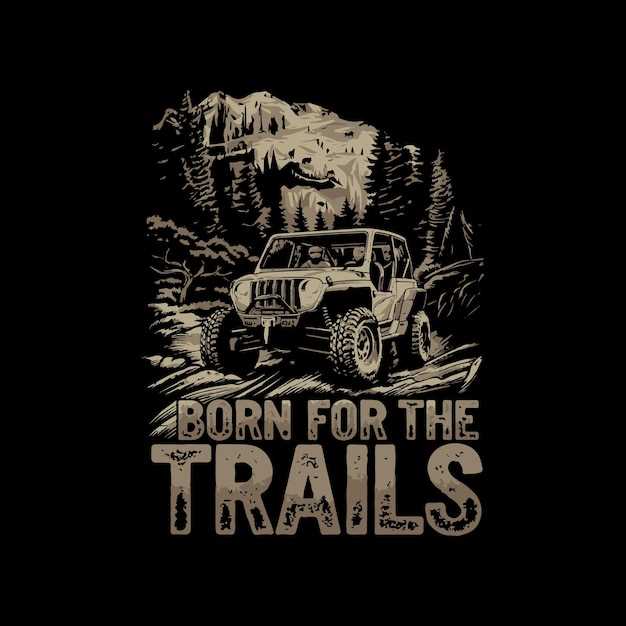
When it comes to off-roading in a Jeep, understanding the proper etiquette is essential for ensuring a respectful and enjoyable experience for everyone involved. The rules of off-road driving not only enhance safety but also promote a culture of camaraderie among off-road enthusiasts. Jeep owners should be aware of these guidelines to preserve the natural environment and maintain positive relationships with fellow adventurers.
As you navigate rugged terrains and explore the great outdoors, it’s crucial to remember that your actions can impact both the environment and the off-road community. Whether you’re traversing rocky paths, muddy trails, or sandy dunes, adhering to specific off-road etiquette will help create a sustainable path for future generations of Jeep enthusiasts. Following these principles ensures that everyone can enjoy the thrill of the ride while minimizing damage to nature.
From understanding the local wildlife to respecting private property, this article aims to provide valuable insight into the dos and don’ts of off-roading. By following these etiquette tips, Jeep owners can contribute to a responsible off-road culture that values both adventure and environmental stewardship.
Off-Road Etiquette Tips for Jeep Owners
Off-road driving is not just about adventure; it embodies a unique culture that emphasizes respect for nature and fellow enthusiasts. As a Jeep owner, understanding the unspoken rules of off-road etiquette is essential for maintaining a positive experience for yourself and others.
1. Respect the Environment
Always stay on designated trails. Venturing off the path can damage fragile ecosystems. Follow local guidelines regarding where you can drive, and be mindful of your surroundings. Carry out what you carry in; leave no trash behind.
2. Share the Trail
When encountering other vehicles or hikers, yield the trail. It’s courteous to give them space to pass, especially on narrower paths. Remember that some users might not be as experienced, so offer a friendly wave as a sign of respect.
3. Know Your Vehicle
Familiarize yourself with your Jeep’s capabilities. Understand your limits and those of your vehicle, as overestimating can lead to dangerous situations. If you’re not sure, seek advice from fellow Jeep owners or consult resources before venturing too far.
4. Prepare for Challenges
Always go off-road prepared. Carry essential tools, food, water, and recovery gear. Being prepared ensures you can assist others as well. Help others when required, fostering a sense of community within the off-road culture.
5. Communicate Effectively
Use hand signals or radios to communicate with members of your convoy. This prevents confusion and enhances safety. Sharing information about obstacles or changes in the trail is crucial for a successful off-road trip.
6. Practice Responsible Driving
Drive within your skill level. Excessive speed and reckless behavior can result in accidents and damage to the surroundings. Remember that you’re representing the off-road community, and your actions matter.
7. Engage with the Community
Participate in local off-road events or forums. Connecting with other Jeep owners can help you learn more about the latest off-road techniques and share experiences. Building relationships within the culture can significantly enrich your off-roading adventures.
Understanding Trail Right-of-Way for a Smooth Experience
When venturing into off-road adventures, understanding the rules of right-of-way on trails is essential for maintaining a harmonious atmosphere among Jeep owners and all other trail users. The culture of off-roading is built around mutual respect and safety, which is reflected in how we navigate shared paths.
In general, the established rules dictate that slower vehicles should yield to faster ones. For example, if your Jeep encounters a motorcycle or an ATV, it’s advisable to pull over and let them pass. Similarly, uphill traffic has the right-of-way over downhill traffic; this courtesy helps prevent accidents and ensures that everyone can continue their journey smoothly.
It’s also important to be aware of the type of vehicle you are driving. Larger vehicles, like trucks or those towing trailers, may require more space to maneuver and should be given consideration. Always signal your intentions clearly to avoid confusion and maintain a safe distance from other vehicles.
Furthermore, ensuring that your Jeep adheres to trail etiquette not only prevents conflict but also fosters a positive off-road environment. Being courteous and aware of others enhances the collective experience and upholds the integrity of off-road culture.
In summary, understanding and respecting trail right-of-way rules is crucial for a smooth off-road experience. By prioritizing safety and courtesy, Jeep owners contribute to an enjoyable environment for everyone on the trail.
Maintaining Environmental Responsibility While Off-Roading
As Jeep owners, embracing the off-road culture comes with a responsibility to protect the environments we explore. Adhering to environmental rules not only preserves nature but also ensures that future generations can enjoy these landscapes. Responsible off-roading begins with understanding the impact of our vehicles on the terrain.
Always stick to designated trails and paths. Straying from established routes can lead to soil erosion, damage to wildlife habitats, and destruction of plant life. Respecting these boundaries fosters a culture of stewardship among Jeep owners and demonstrates a commitment to preserving natural areas.
It’s essential to minimize waste while off-roading. Carry out all trash, including biodegradable items like food waste, as they can disrupt local ecosystems. Additionally, using leave-no-trace principles helps maintain the integrity of the environment. Being mindful of where we park and setting up camp can also prevent damage to sensitive areas.
Embrace the spirit of conservation by participating in clean-up events and advocating for sustainable off-roading practices within the Jeep community. Collaboration with local organizations is vital in understanding and following environmental regulations designed to protect these cherished landscapes. By doing so, Jeep owners can lead by example and foster a respectful culture that prioritizes environmental responsibility.
Building a Community: Best Practices for Jeep Events and Gatherings
Organizing and attending Jeep events can foster a strong sense of community among off-road enthusiasts. Here are some best practices to help you create memorable and respectful gatherings.
Establish Clear Rules
Ensuring safety and enjoyment for all participants starts with rules. Here are some essential guidelines:
- Respect private property: Always obtain permission before accessing private trails or land.
- Adhere to trail regulations: Each location has specific rules; familiarize yourself with them beforehand.
- Leave no trace: Ensure that you dispose of waste properly and avoid damaging the environment.
Safety First

Off-road adventures can be risky. Prioritize safety by:
- Conducting vehicle inspections: Ensure all Jeeps are in good working condition prior to the event.
- Providing safety briefings: Discuss potential hazards and emergency procedures with participants.
- Encouraging the use of safety gear: Helmets, gloves, and straps should be standard fare for off-road driving.
Foster Inclusivity
A welcoming atmosphere makes events more enjoyable. Consider the following:
- Encourage participation from all skill levels: Offer workshops or guided tours for beginners.
- Promote diversity: Make an effort to include individuals from different backgrounds and experiences.
- Listen to feedback: Create avenues for participants to share their thoughts and suggestions.
Organize Group Activities
Engage attendees with structured activities that enhance the community experience:
- Off-road challenges: Set up friendly competitions that test driving skills.
- Social gatherings: Plan cookouts or campfire evenings for relaxed interaction.
- Charity events: Organize fundraisers or community service projects to give back.
Utilize Online Platforms

Leverage social media and forums to keep the community connected:
- Create event pages to share updates and facilitate discussions.
- Encourage members to post photos and stories from events.
- Share information on upcoming trails and gatherings to maintain enthusiasm.
Building a robust Jeep community requires dedication and effort. By following these best practices, you can create engaging and respectful gatherings that off-road enthusiasts will cherish. Remember, a strong community is built on shared experiences and mutual respect.




